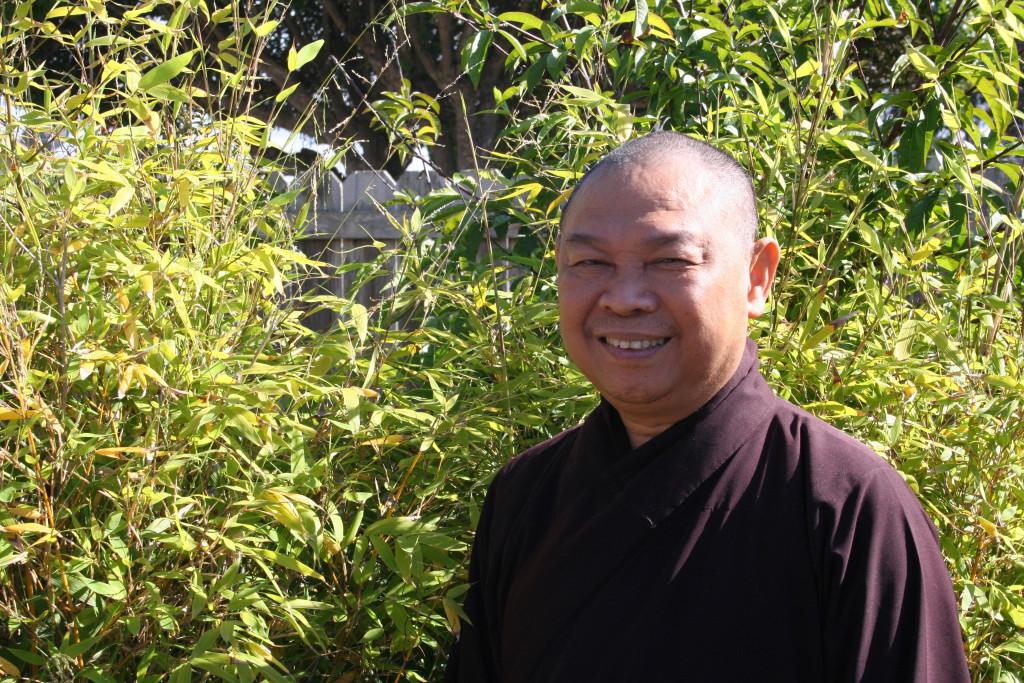“I went to the temple to practice Buddhism when I was 13 years old. I really enjoyed listening to the monks chanting. The sound touched me deeply. When I am chanting, the Buddha’s teachings enter me, and when I prostrate to the Buddha, I feel very close to him. I prostrate to the Buddha, the Dharma and the Sangha. It is a way to show respect.”
“In 1996, I went to Plum Village and practiced with Thich Nhat Hanh for one year. I enjoyed this practice, so now I combine my traditional practice with the practice of Thich Nhat Hanh.”
“I teach young monks in Vietnam. We read and discuss the Sutras, and we talk about the basic Buddhist teachings like the Four Noble Truths, the Eightfold Path, etc. We also read Vietnamese Buddhist literature and poetry. I really enjoy teaching. In the past, other monks taught me a lot, and now I want to pass it on. I want to use my life to teach people about Buddhism and Buddhist practice. That’s why I don’t only teach monastics but also started classes for lay people.”
“In this life we don’t always get what we want, and then we suffer. When this happens to me, I let go quickly. When you believe that something is very important, it sticks to you, and it will be difficult to release. But if you realize that it is not important, you can let go quickly. In the past there were many times when I went hungry, I had very little to eat but I told myself that it is not important. It helped me to suffer less. After the Vietnam War times were incredibly difficult. We worked in the rice fields, and every day we had to pull a wagon behind us for 30 kilometers in cold, rainy weather. Again I told myself that it is not important. I was already a monk, and I was happy being a monk, even if I had to work hard and go hungry sometimes. It wasn’t just me, many monks were in this situation, and we supported each other.”
“In a Sangha we live together, and we love and support each other. Sangha is not limited to the monastic community, it can also include laymen and laywomen. If we practice together harmoniously as a Sangha, we serve as a good example for others. Living at the monastery with a lot of monks, I never tried to have people follow my way, I preferred not being important. This is probably why I rarely had any conflicts. When someone is very upset with me, I just remain normal and act like I don’t know that they are upset with me. Usually, they recognize that their anger is taking over and they calm themselves down. But this doesn’t really happen often, not too many people get upset with me. If a student does get angry with me, I don’t use harsh words. Instead, I give him or her a text from the Sutra, which addresses the topic of anger.”
“According to the Buddhist teachings love means that we understand each other, we forgive each other. We forget ourselves, and we are there for our beloved. True love is unselfish.”
“Reciting the Buddha’s name is a form of meditation, it clears and purifies your mind. You should recite it mindfully, but even if you are distracted it is helpful, because your mouth is repeating the Buddha’s name, so you put the seed of the Buddha inside of your mind. It’s like planting a seed in the soil.”
“I hope everybody will come together with a peaceful mind and heart. The Vietnamese song writer Trinh Cong Son put it this way: To live in this world we need one good heart.”


